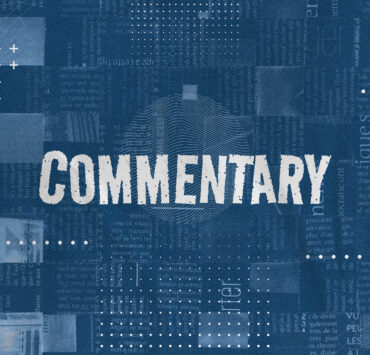Drastic measures vs online gambling

The directive of the Bangko Sentral ng Pilipinas (BSP) ordering e-wallet platforms such as GCash and Maya to remove all links and promotions in their apps that bring users directly to online gaming sites is aimed at addressing the frightening menace posed by gambling on society. The same is true with the taking down of all billboard advertisements of internet-based gaming apps effective Aug. 15. While helpful, however, both will have little impact insofar as addressing online gambling is concerned.
The BSP order does not really prevent the use of e-wallets to gamble. As lawmakers pointed out during the hearing of the Senate committee on games and amusement last week, gamblers can still pay for their bets using these mobile payment apps by simply going directly to the gaming website. The taking down of billboards has the same negligible impact since the promotion of gambling apps is not limited to those outdoor advertising. Online gambling is aggressively being promoted in the more far-reaching social media apps such as Facebook and TikTok as well as in online shopping sites Shopee and Lazada.
The government needs draconian measures to truly curb online gambling, which it allowed to prosper in the first place. The extent of this problem—or addiction—cannot be emphasized more by the numbers given during the Senate hearing, where Sen. Sherwin Gatchalian presented alarming data showing that the number of Filipinos engaged in online gambling skyrocketed to 32.12 million as of May this year, a huge jump from only 8.2 million at the end of 2024.
Higher barriers to entry
This already accounts for roughly half of the country’s adult population. Data from the state-run Philippine Amusement and Gaming Corp. also showed that in the first half of 2025, the entire gaming industry reported gross gaming revenues of P214.75 billion, up 26 percent from P171 billion in the same period last year.
While it is true that eradicating online gambling is impossible, weaning away the millions of Filipinos already struggling to live each day and minors from online gambling is achievable through the adoption of higher barriers to entry. Several lawmakers have earlier filed bills aimed at regulating or banning online gambling in the country. Gatchalian filed on July 1, 2025, a bill that sets a minimum cash-in requirement of P10,000, or the money an individual will need to show before being allowed access to an online gaming app. While small for the rich, this is a stiff price for minors who depend on their allowances from parents and for those who barely earn enough.
‘Moral and social crisis’
Along this line, the BSP also disclosed that it is in the final stages of issuing tighter payment regulations aimed at curbing online gambling addiction. The new rules will include enhanced identity verification protocols such as biometric checks and facial recognition to ensure that minors are kept off gaming sites.
It also plans to implement daily transaction limits and time-based restrictions on gambling-related payments to help prevent excessive losses and impulsive behavior. The rules will likewise mandate payment channels to provide user tools that allow individuals to set personal spending caps or take voluntary breaks from gambling.
In a more drastic move, Sen. Juan Miguel Zubiri has filed another bill, the Anti-Online Gambling Act of 2025, that seeks an outright ban on all digital betting platforms, mobile apps and websites in the country. This is backed by the Catholic Bishops’ Conference of the Philippines, whose president and Kalookan Bishop Pablo Virgilio David has condemned online gambling as a “moral and social crisis” targeting the youth through easy access, enticing wins, and celebrity endorsements.
Only solution
A possible drawback is that people may be drawn to illegal gambling. Data presented by Tulfo during the Senate hearing last week already showed that there are 11,985 illegal online gambling sites nationwide, of which 6,363 are online casino games, 235 offshore sites, and 4,815 e-sabong. Addressing the online gambling problem will therefore need the participation of several government agencies, from the local barangay officials to LGUs and law enforcement agencies to go hard on these illegal activities.
At the end of the day, such a total ban on online gambling is the only solution. The government just needs to look for other revenue sources to offset the revenues it generates from legal gaming activities. As an aside, plugging the hundreds of billions of pesos lost to corruption each year will be more than enough. We also hope that the enthusiasm of lawmakers to address this public menace of online gambling will not dissipate and that they pursue this campaign with the same vigor as they did in the case of the now banned Philippine offshore gaming operation or Pogo. In the meantime, totally unlinking—or prohibiting the use of e-wallets in online gaming apps—can do wonders considering that GCash alone has reported having some 81 million active users.





















Don’t scrap the party list—take it back